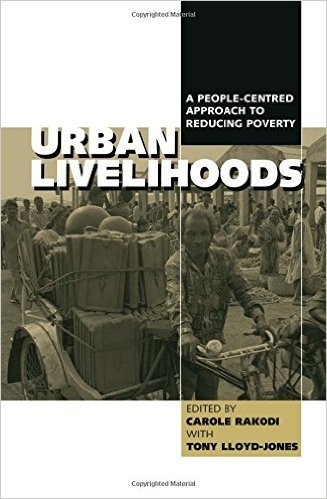
A livelihoods approach views the world from the point of view of the individuals, households and social groups who are trying to make a living in volatile conditions and with limited assets. It provides a framework for understanding the opportunities and assets available to poor people and the sources of their vulnerability, as well as the impact upon them of external organizations, processes and policies. Based on recent and extensive research, this collection assesses the value of the livelihoods approach in analyzing urban poverty and guiding the selection of policy and program components. Part two reviews the situation and strategies of poor urban people and identifies the policy and practical implications. In part three reviews recent project experience and finally policy and practical implications are identified. Lasting improvements in well-being depend not just on economic development but on political commitment to addressing the concerns of the poor as well as governance structures and processes that are responsive to the claims and needs of different groups of poor people. This readable account will be important for professionals, development workers, academics and students.
Links
Resource collections
- UN Habitat - Urban Response Collection
- Urban Response - Urban Crisis Preparedness and Risk Reduction
- Urban Response Collection - Community Engagement and Social Cohesion
- Urban Response Collection - Economic Recovery
- Urban Response Collection - Environment and Climate Change
- Urban Response Collection - Housing, Land and Property
- Urban Response Collection - Urban Crisis Response, Recovery and Reconstruction
- Urban Response Collection - Urban Resilience
